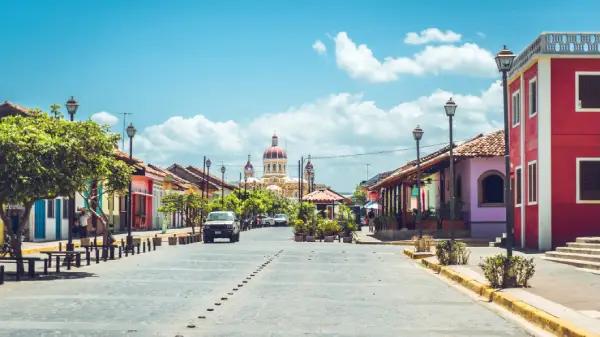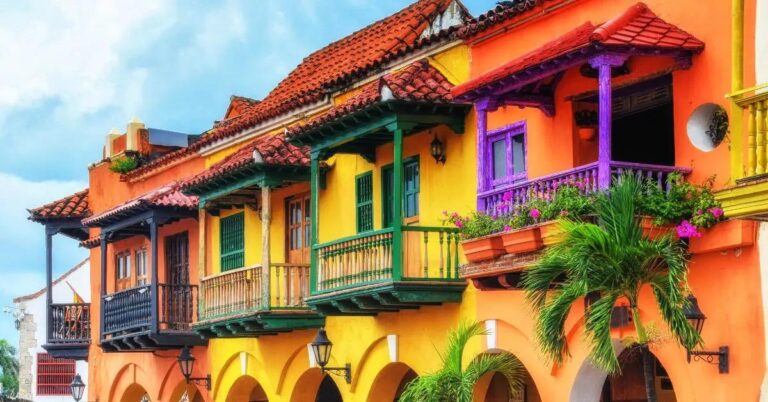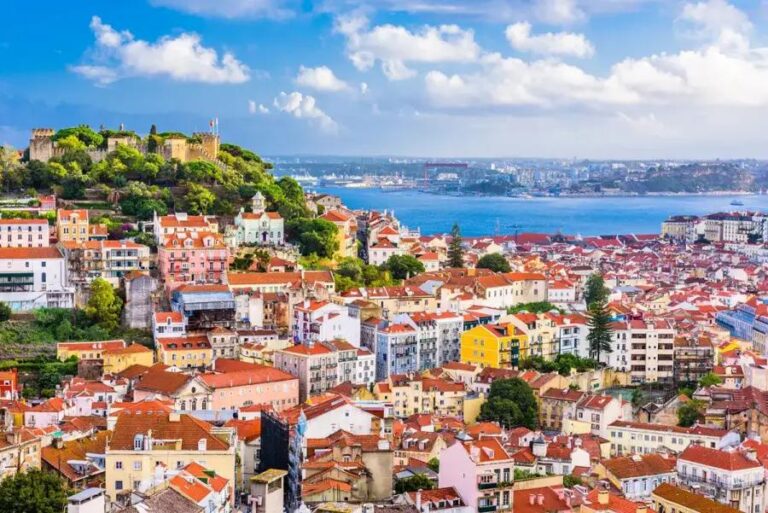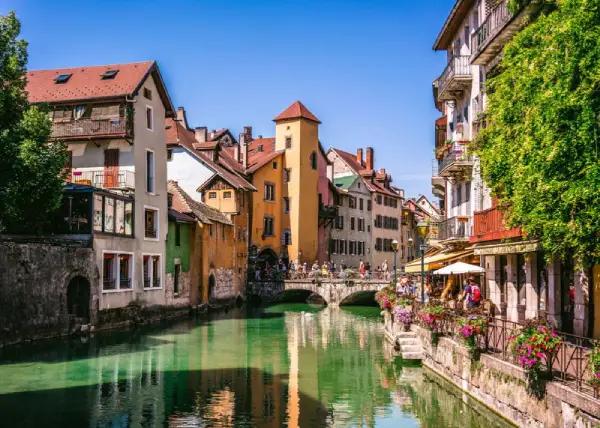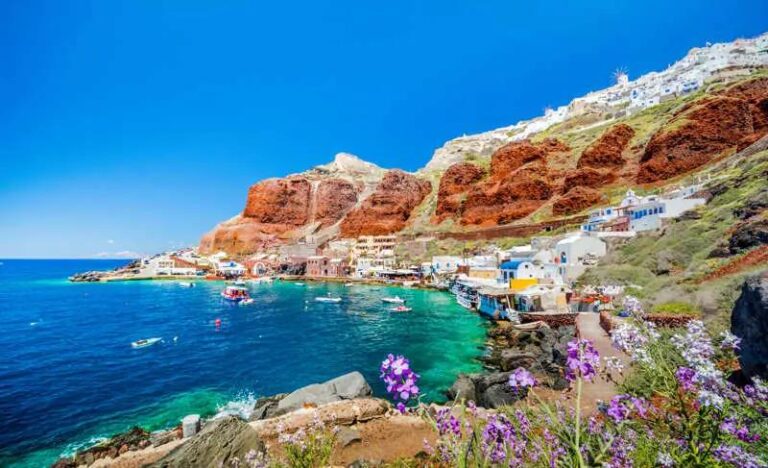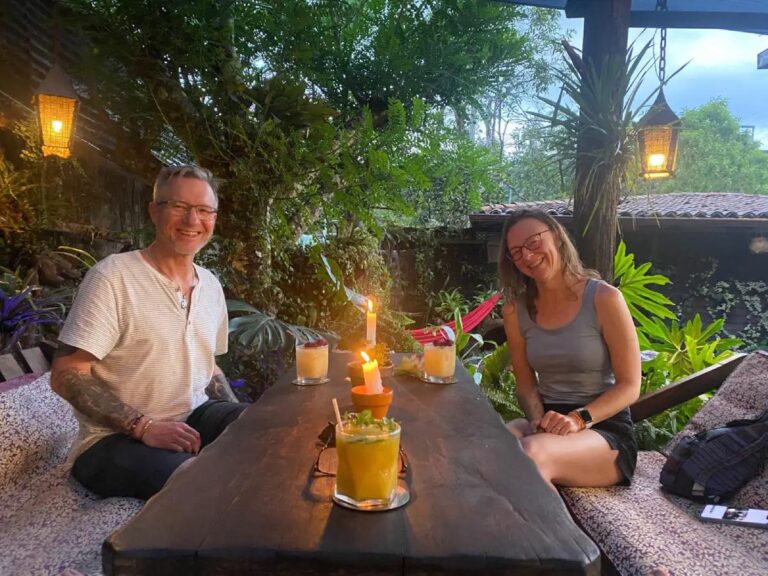TL;DR:
- Renting in Nicaragua: ~$500/month for 2-bedroom apartments in cities, slightly higher in coastal areas.
- Buying property: $50,000-$200,000 plus 2% legal fees.
- Monthly living expenses: $800-$1,200 for a comfortable lifestyle.
- Utilities: $85/month (electricity, water, internet).
- Groceries: ~$200/month; dining out: $5-$10 per meal.
- Healthcare: Doctor visits ~$20, insurance ~$50/month.
- Transportation: Public transport ~$1/bus ride, $5/taxi; owning a car ~$100/month.
- Entertainment and daily necessities: ~$50 for activities, $50 for essentials.
- Cost of living is significantly lower than the US; similar lifestyle costs $1,200/month in Nicaragua vs $3,000/month in the US.
- Retirement planning in Nicaragua offers substantial savings and an affordable, comfortable lifestyle.
Considering a tropical haven to stretch your retirement dollars further? Let me guide you through “Cost of Living in Nicaragua for Retirees: Is It Affordable?” Discover affordable housing, learn about the cost of daily items, and understand how living in Nicaragua compares to the U.S. Whether renting or buying, planning utilities, or evaluating healthcare, we’ll break down every aspect to help you decide if Nicaragua is your next home. Dive in!
How Much Does Housing Cost for Retirees in Nicaragua?
When thinking about retiring in Nicaragua, you’ll want to know two critical choices: renting vs buying property. The decision can affect your cost of living significantly and understanding both options is essential for making the right choice.
Renting vs Buying Property
Is it cheaper to rent or buy property in Nicaragua? For many retirees, renting offers flexibility and fewer long-term commitments. If you prefer to own, property prices in Nicaragua are quite attractive. Both options have benefits, but your choice depends on your personal preference and financial situation.
Average Rent Prices in Major Cities
What can you expect for rent prices in Nicaragua? In cities like Managua and Granada, you can find decent two-bedroom apartments for around $500 a month. Coastal towns like San Juan del Sur might be a bit higher, but still affordable compared to the US.
Buying Property: Costs and Process
If you think about buying property, you should know the costs and processes involved. The property prices in Nicaragua are low, often ranging from $50,000 to $200,000 for nice homes. You must also consider legal fees, which can add about 2% to the property cost.
Affordable Housing Options
Nicaragua has many affordable housing options that cater to all kinds of needs. Whether you want a simple apartment or a spacious house, there are various choices. Many retirees can find comfortable homes well within their budget, making it a great place for affordable housing.
Long-term Rental Costs
For long-term renters, the prices are often lower. Renting long-term can save you money, as landlords sometimes offer discounts for extended leases. This option works well for retirees who prefer not to own a home right away.
Real Estate Market Trends
The real estate market in Nicaragua is steadily growing. More retirees are moving here, making the market quite dynamic. Staying informed about these trends can help you find the best deals and time your purchase or rental effectively.
Retirement Villages
Are there retirement villages in Nicaragua? Yes, and they offer a community feel while maintaining affordable living. These villages provide shared amenities and social activities, making them a great option for those wanting a more structured lifestyle.
Tips for Finding the Right Accommodation
How do you find the right accommodation in Nicaragua? Start by researching and visiting various areas. Talk to local real estate agents who can provide insights on the best places to live. Networking with other expats can also give you helpful tips and real-life experiences.
By considering these factors, planning your retirement in Nicaragua can become much easier and more enjoyable.
What Are the Monthly Living Expenses for Retirees in Nicaragua?
Living in Nicaragua as a retiree offers many financial advantages. Monthly expenses need careful planning, though. Here’s a breakdown:
Utilities: Electricity, Water, Internet, and More
The cost of utilities in Nicaragua is reasonable. A retiree can expect to pay around $50 for electricity, $10 for water, and $25 for a reliable internet connection. This means utilities set you back about $85 each month. Keep in mind, using air conditioning will increase costs.
Cost of Groceries vs Dining Out
Groceries are affordable here. Expect to spend about $200 monthly. Local markets offer fresh vegetables, fruits, and meats at low prices. Dining out is a treat; a meal at a mid-range restaurant costs about $5 to $10. Eating out twice a week adds another $40 to $80 to your expenses.
Healthcare and Medical Insurance Costs
Healthcare in Nicaragua is both high-quality and cheap. A visit to the doctor is around $20. Monthly healthcare plans cost about $50, covering most needs. Opting for private hospitals or clinics could mean higher costs, but still lower than in many countries.
Transportation: Public vs Private
Public transport is a budget-friendly choice. A bus ride is under $1. If you prefer taxis, expect to pay about $5 per ride within city limits. Owning a car will cost more with insurance, maintenance, and fuel. Budget around $100 monthly if you drive.
Entertainment and Social Activities
Social activities like movies or events are affordable. A movie ticket costs $4. Joining a local club or gym might cost $20 a month. Budgeting $50 for entertainment means you can enjoy various activities without breaking the bank.
Daily Necessities and Miscellaneous Costs
Other daily necessities, like toiletries and cleaning supplies, add up to about $50 monthly. It’s smart to budget an extra $100 for any unexpected expenses.
Maintaining a Comfortable Lifestyle
For a comfortable lifestyle, expect to spend around $800 to $1,200 each month, considering all the factors above. This makes Nicaragua a cost-effective place for retirees to live comfortably. For more details, check out this comprehensive guide.
How Does the Cost of Living in Nicaragua Compare to the US?
Average Living Costs in Nicaragua vs the US
The cost of living in Nicaragua is lower than in the USA. You might spend $1,200 a month in Nicaragua, while in the US, the same lifestyle could cost around $3,000. This means your retirement dollars go further.
Housing and Accommodation Comparisons
Rent is one of the biggest savings. Average rent in Nicaragua is about $300 a month for a nice apartment. In contrast, renting a similar place in the US can cost $1,500 or more. If you buy property, prices are very reasonable too.
Healthcare and Insurance Differences
Healthcare in Nicaragua is much cheaper than in the USA. A doctor’s visit can cost just $20. Health insurance is also affordable, often less than $60 a month. In the US, these costs are much higher.
Food and Dining Out: Cost Analysis
Groceries are more affordable in Nicaragua. You can fill your cart for about $200 a month. Dining out is also cheaper, with a nice meal costing around $10. In the US, groceries and dining can easily double that amount.
Transportation: Costs and Options
Public transportation is very cheap in Nicaragua. Bus fares are just $0.30. If you prefer driving, gas costs less too. A gallon of gas in Nicaragua is about $4, whereas in the US, it’s often $5 or more.
Utility Bills: Nicaragua vs the US
Utilities in Nicaragua cost less. Monthly bills for electricity, water, and internet average around $100. In the US, these can run up to $300 a month.
Overall Monthly Budget Comparison
When you add everything up, retirees can live well in Nicaragua for about $1,200 a month. In the US, a comparable lifestyle could cost over $3,000. This makes a big difference if you’re budgeting for retirement.
Financial Planning and Savings for Retirement
Planning your retirement in Nicaragua can allow for more savings. With lower living costs, you can maintain a comfortable lifestyle without depleting your retirement funds quickly. Effective financial strategies will help ensure a stress-free retirement.
Conclusion
Finding affordable housing in Nicaragua as a retiree can be easy. Renting might be better for short stays, while buying property offers long-term advantages. Major cities have varied rent prices, and real estate trends show potential growth. Retirement villages provide community living, and proper planning ensures you find your ideal home. Nicaragua’s utilities, healthcare, and food costs are lower than in the US, making it an appealing retirement destination. Embrace this new chapter with optimism and sound planning. Your Nicaraguan retirement can be enjoyable and cost-effective!

